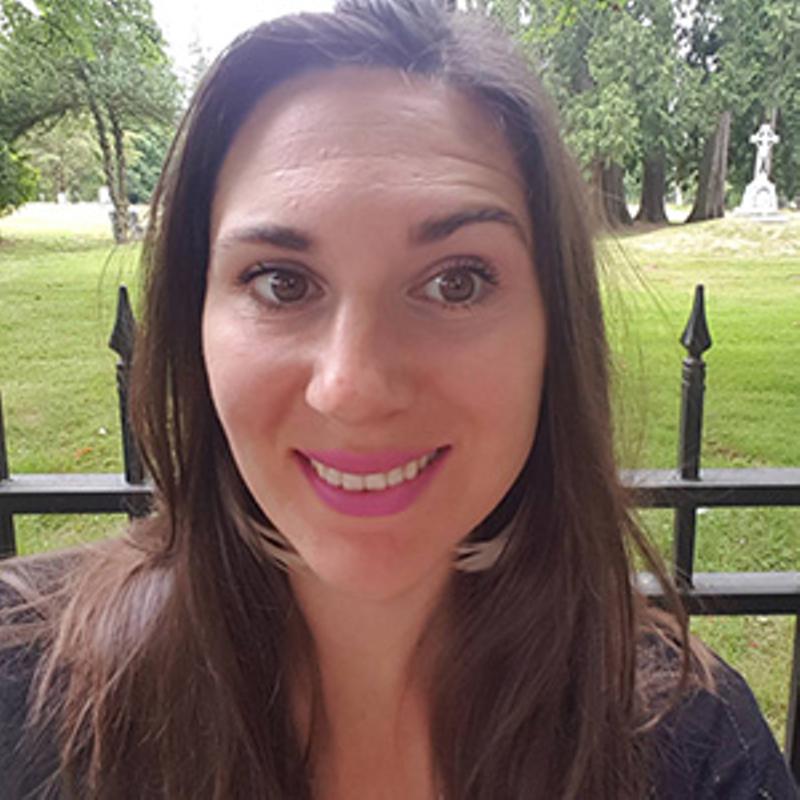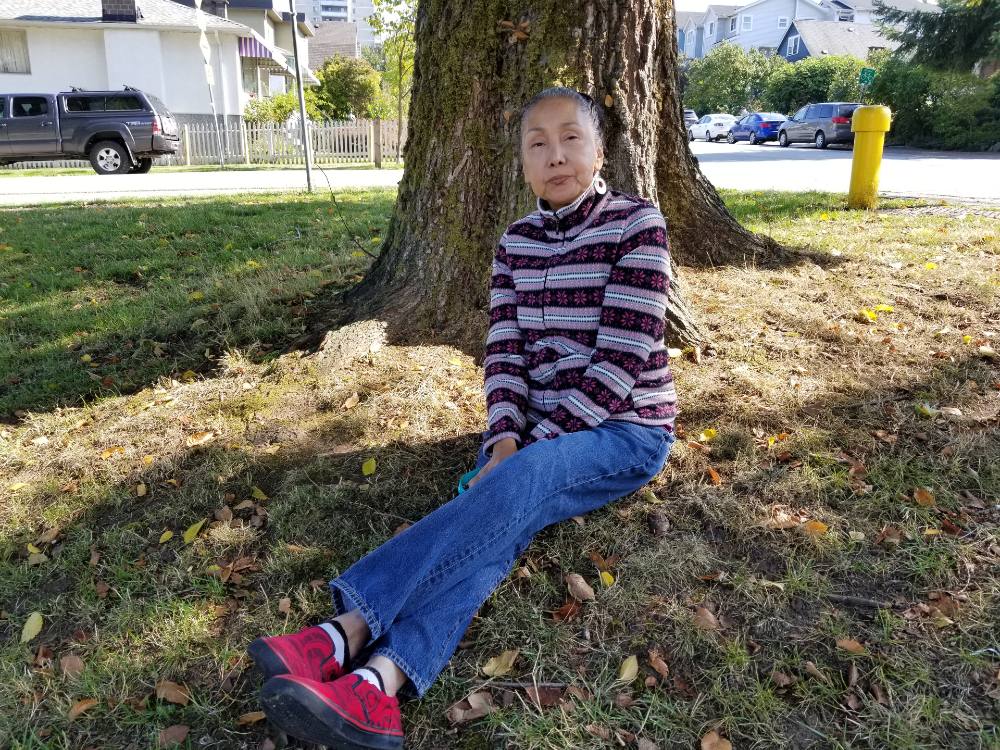[Editor’s note: This story contains information related to the residential school system, abuse and intergenerational trauma. It may be triggering to some readers.]
Kat Zu’comulwat Norris, a well-known and well-loved Elder in the Vancouver community, passed away in July, at the age of 67.
I had the honour of meeting with Kat for an interview in 2018. She touched my heart, and we talked for a few hours that day. The story I was working on was about Chief Ian Campbell’s run for mayor, which ended with him stepping down because a past assault and driving charge had surfaced. I didn’t want the focus of the story to be about any sort of scandal; instead, I wanted to focus on what was productive, and how we could move forward with lessons from Campbell’s run in a good way.
In other words: I was seeking Kat’s wisdom and insight as an Elder and community leader when I spoke with her.
I found her words so inspiring that I always regretted not being able to share more in the article we published at the time. With permission from her family, I will now.
Kat and I met on a beautiful, sunny, September morning, and sat in an East Hastings park near her home. Despite how outspoken she was publicly, she had a gentle demeanour, which made me feel immediately at ease — like I was talking to an old friend.
We sat together on a park bench, and she started her story right from the beginning of her life.
She was born on Valdes Island, in the Lyackson First Nation. Her parents were the last arranged marriage in her community. When they grew a little older, they separated, and chose their own partners, she said. Her mother married into the Nanoose First Nation, and moved Kat and the family there for a few years.
The freedom of her childhood came to an end when she and her siblings were forced to attend the Kuper Island Indian Residential School. (This school was notoriously bad for abuse of children and neglect. So much so, that some survivors call it Alcatraz.)
“Our parents didn’t want us to go, but it was the law back then. My mother tried to fight it, but was told we would be taken away if they didn’t let us go,” she said.
“Our life before that was very free... a very joyous lifestyle.... Growing up with hardworking grandparents, fishing and woodcutting.”
Kat endured sexual, emotional and physical abuse at Kuper Island. Kat had also been sexually abused before even going to the school; many years later, she realized the tragic reality that her abusers were also children who had once been abused in similar circumstances after being taken away from their families.
She also remembered being pitted against other girls in her dorm, including her own sister on one occasion.
That night, her sister was talking with some other girls in the dorm while they should have been sleeping. A nun came in and woke everyone up, to punish the group for the behaviour of the few.
The nun called on Kat to admonish her sister. “I walked up to her and slapped her,” Kat told me. “The nun was feeding me what to say: ‘What are you going to do? She was talking and you guys all had to get up?’”
This is what they learned in residential school, she said — how to “pull each other down.”
“It was each man for himself. Each person for themselves. And it didn’t matter if we cleaned the whole dorms shiny clean, the nun would walk in and look for that tiny little thing you did wrong. So that was our life… always worried about what we did wrong,” she said.
Years later, when she began her “healing journey,” she apologized to her sister for what she did that night.
Kat’s mother took her and her siblings out of this school when Kat was 11 years old. The family moved to California, returning to Canada when Kat was 19.
It was when she came back that she really started connecting with the Indigenous community in a deeper way. Her mother often sent her to what was then the Vancouver Indian Centre Society (now the Vancouver Aboriginal Friendship Centre Society), to “get to know her people,” she said, and the American Indian Movement was frequently there giving talks.
“I learned about words like ‘genocide’ and ‘marginalization’ and things that happened to our people,” she said.
“We were fighting against the extradition of Leonard Peltier,” she added. “I became a follower and I got involved, the more I learned.”
Leonard Peltier is a now 77-year-old Native American activist, who is still in jail for the killing of two FBI agents in 1975, on the Pine Ridge Reservation in South Dakota. He was sentenced to two life terms for this charge in 1977.
For years, there have been calls for his release from advocates and activists, who claim the case was rife with errors and police misconduct, and that Peltier is innocent.
The United Nations Human Rights Council’s Working Group on Arbitrary Detention released a report on Peltier’s case this past June. They too, called for his release.
The report outlines the errors in detail as well as gives background information on the life of Peltier, such as that he was taken from his grandmother at age 9, and sent to an Indian Boarding School much like Canada’s Indian Residential Schools. While there, he was “beaten,” and not allowed to speak his language.
Kat also remembered being fired up over the killing of Mi’kmaq man, Frank Paul, in Vancouver in December 1998. Paul had been picked up by police for being drunk in public but a sergeant at the police station refused to put him in the holding cell. The officers who brought him in then dragged him to the police car (which was caught on camera at the time), and left him in an alley, where he later died of hypothermia.
Ten years after Paul’s death, a public inquiry concluded the police and the justice system had failed Paul in both life, and death — from the actions of the police that led to his death, to faulty investigations into it, and a three-year delay before his family was told what actually happened to him.
This marked the start of Kat becoming an organizer for community events.
“I kept telling myself, someone’s got to do something. And I got so upset, I decided to organize a rally,” she told me.
She had an “old-fashioned fax machine” she used to copy the flyers. Then she spread them around, and gave some to the media, too. To her amazement, the turnout was huge, she said.
“What I realized at that moment was a lot of us felt the same way. A lot of us needed a voice to express ourselves. We were hurt the same way for him because what happened to Frank Paul represents the feeling of society against our people.... And you know, from the people that are supposed to take care of us.”
Kat went on to organize a lot of community rallies, like an Idle No More rally at the Peace Arch Provincial Park in 2013, and Frybread Giveaways. When it came to her community rallies, as she got older, she shifted her focus, she said.
“I’ve changed from... organizing rallies against injustice, to doing things for the people,” she said. “Because a lot of activists go through burnout.”
Kat’s Frybread Giveaways were a particular source of pride for her. The Frybread Giveway was a yearly New Year’s event she put on for the people in the Downtown Eastside, in its eighth year in 2018. She was inspired to put this on after walking through the Downtown Eastside on her way to a New Year’s dance and seeing the people there cheering and wishing everyone a Happy New Year. She thought, how can I give back to them? The first giveaway was a huge success, and the crowd who received the frybread was immensely grateful.
Over the years, it became bigger than frybread, with other items like clothes and sanitary items given away, too.
In addition to her willingness to give to the community, Kat was an inspiration to others because of her hard work, especially given the hardship she has endured.
She struggled with depression, anxiety and PTSD much of her life. She really began trying to heal herself when she started having panic attacks as a young mom. She was in the emergency room three times for this, she said.
A few years later, she was officially diagnosed with these conditions, and found help through counselling.
“As a grandmother, it was something that really opened my eyes. It really helped me to accept I still have work to do,” she said.
To further add to her list of achievements, Kat didn’t finish high school as a youth, but returned in her 40s. After finishing it, she went to school for a family counselling program. She then worked in this capacity for a few years, also becoming an Elder at a treatment centre. She also gave a lot of talks at universities, like the University of British Columbia, and other schools.
“I’m known as an Elder. I fought it a long time, and now I’ve accepted my role,” she said with a laugh. “Especially because I have grandchildren.”
While she wasn’t entirely sure what that role was supposed to mean, she felt in her heart that it meant to be the best example that she could, she told me.
Some of her best advice on how to live with hardship — like racism in public, which Kat said she experienced frequently throughout her life — came from her mother.
“My mom used to say, ‘Before you walk out that door, put your warrior on.’ It’s something I do before I walk out the door,” she said. “Get clear, send that good energy out before me.”
Kat also suffered from lupus. It made life harder for her, including meaning she needed to be on bedrest for the first few years after her diagnosis — while trying to care for her children — but she persisted, fighting for herself, her family and her community.
“There’s something in me that was stronger,” Kat said. “That’s the love for my people and the hope for their healing.” ![]()
Read more: Indigenous, Rights + Justice
















Tyee Commenting Guidelines
Comments that violate guidelines risk being deleted, and violations may result in a temporary or permanent user ban. Maintain the spirit of good conversation to stay in the discussion.
*Please note The Tyee is not a forum for spreading misinformation about COVID-19, denying its existence or minimizing its risk to public health.
Do:
Do not: